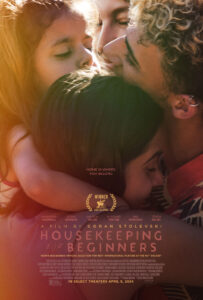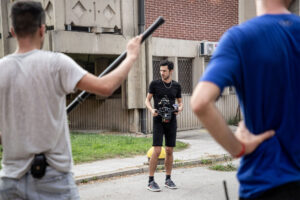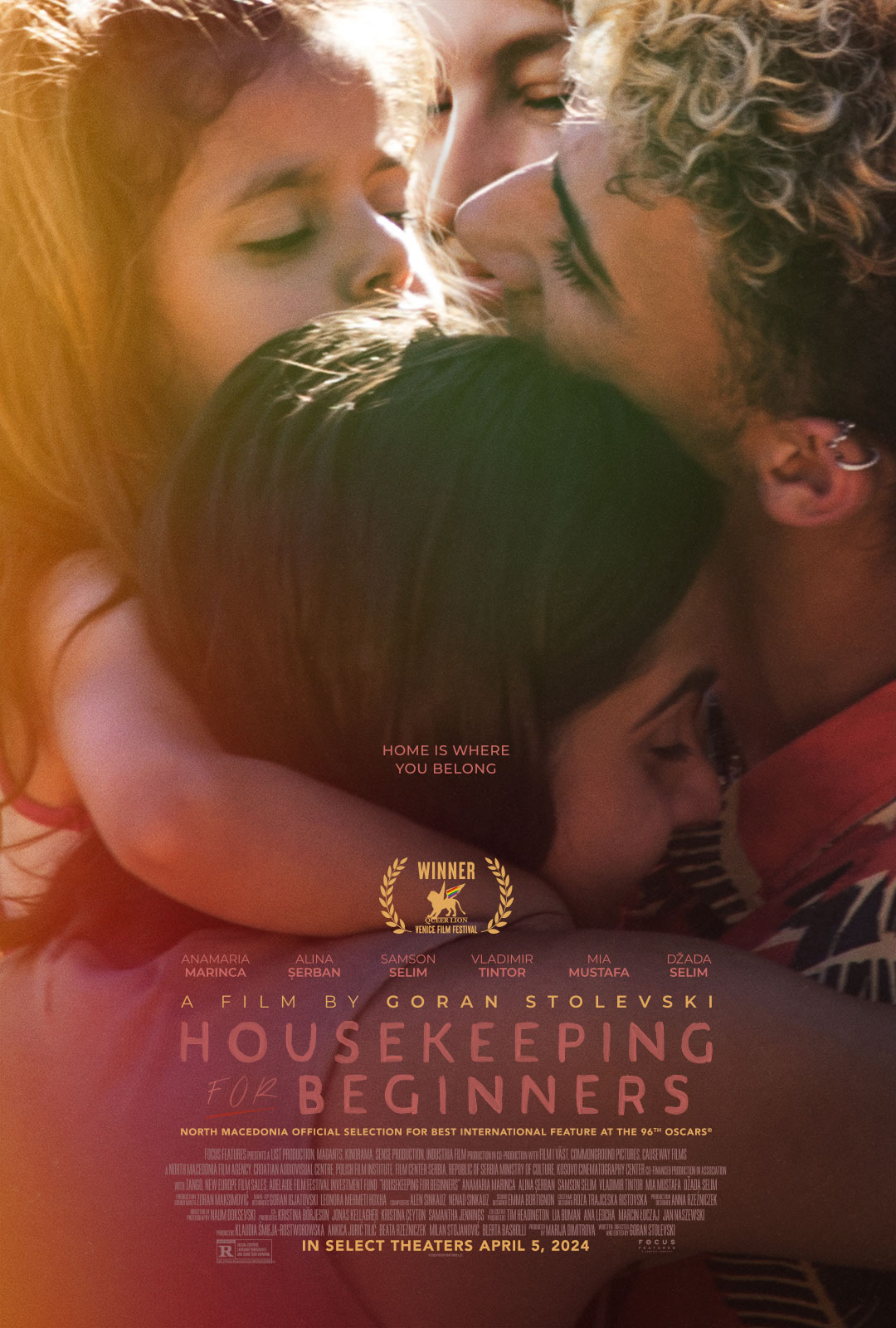In the intricate tapestry of filmmaking, few movies manage to seamlessly blend realism with a rich, narrative depth quite like “Housekeeping for Beginners.” Directed by Goran Stolevski, this cinematic venture explores the nuanced interactions and transformations within a seemingly ordinary household in North Macedonia. It’s a story that fluctuates between the confines of a well-kept home inherited from a former politician father and the boundless emotional landscapes it harbors within its aged walls. This film, steeped in verité style, embarks on an exploration of life’s chaos, reflecting the director’s penchant for capturing moments that resonate with authenticity and spontaneity.
Stolevski, with a background in indie filmmaking, shares, “I’ve always been drawn to moments that feel ‘found’ or ‘discovered’ as opposed to ‘staged.’…My approach with ‘Housekeeping for Beginners’ was to create an environment on set that feels real and almost independent of the story we are telling.” This guiding philosophy transformed the production process into a journey of discovery, allowing for the serendipitous and the genuine to lead the way.

Housekeeping for Beginners is set in Skopje, North Macedonia’s political, cultural, economic and academic center.
Set against the intricate backdrop of North Macedonia, the narrative unfolds inside Dita’s inherited home, a character in its own right with its timeless furnishings and aura of a bygone era. Stolevski elaborates on the choice of location, “‘Becoming a politician is the easiest way to get a house like that in North Macedonia’…It’s like a time capsule. Nothing has really changed.” This environment becomes a crucible for the blending of the characters’ varied backgrounds, setting the stage for complex interactions and evolutions.
The dynamic between the characters and their setting is amplified by the culturally rich landscape of North Macedonia, offering a vibrant palette of dialects that accentuate the narrative’s diversity. The inclusion of what Stolevski describes as “trashy pop music,” predominantly Serbian pop, not commonly featured in Balkan art films, serves as a lively contrast to the house’s traditional decor. It symbolizes a joyous, unifying element amongst the characters, further enriching the film’s texture and emotional resonance.
Crucially, the visual storytelling in “Housekeeping for Beginners” benefits from the collaboration between Stolevski and cinematographer Naum Doksevski. Doksevski’s adaptability and creative vision were vital in realizing the film’s aesthetic aspirations. Stolevski praises Doksevski’s role, “He was attached even before we had a script… He has the flexibility to adapt quickly, which was essential for the cinema verité style I wanted.” This partnership, fostered on mutual trust and creativity, ensured that the visuals retained an organic quality, rich in immediacy and depth.

Director Goran Stolevski on the set of his film HOUSEKEEPING FOR BEGINNERS, a Focus Features release.
At the heart of “Housekeeping for Beginners” lies a universal theme of seeking connection and belonging in an often-divisive world. Stolevski’s personal experiences resonate through the film’s narrative, “I’ve been a minority within a minority in various places across most of my life… As an adult and as an artist, I end up siding with outsiders or anyone who has to struggle to fit in…” This introspection seeps into the fabric of the film, offering audiences a reflective mirror on society’s fringes.
The process of filming was imbued with a spirit of flexibility and creativity, with handheld cameras and natural lighting defining the film’s visual character. This approach, underscored by spontaneity and intimacy, allowed for a natural flow of action and reaction, mirroring life’s unpredictability. Actors were encouraged to move and interact authentically, blurring the lines between performance and reality. Stolevski shares an instance when this method led to an unpredictably powerful moment, showcasing the symbiosis between the actors and their environment. “The images are extremely beautiful, but also completely organic. The house we were shooting in didn’t have a lot of natural light. The way Naum works, you will never realize that. Also, I wanted the actors to be able to move around as they felt in the moment, so he was lighting almost for a 360-degree space at all times. I remember once Anamaria was meant to be seated in a scene, but once I said ‘Action’, within about five seconds, she got up and started pacing without warning. Naum was able to capture that in the moment and still keep the composition pristine.”
As “Housekeeping for Beginners” reaches audiences, it stands not merely as a film but as a celebration of the human spirit’s resilience and complexity. It embodies Stolevski’s vision of cinema as a bridge between diverse worlds and experiences, reflecting the myriad ways individuals seek and forge connections. The movie’s blend of authentic performances, a verité style of direction, and a narrative rich in cultural and personal textures offers a compelling glimpse into the lives it portrays. It’s a reminder that in the tapestry of human experience, everyone is, in essence, seeking their place, their family, and their sense of belonging.
In weaving these elements together, “Housekeeping for Beginners” transcends its medium, becoming a resonant exploration of identity, community, and interpersonal relationships in a world that too often feels fragmented. Through its characters’ journeys, set against the backdrop of a North Macedonian home, the film invites audiences to reflect on their narratives, challenging them to find beauty in the chaotic, the unfamiliar, and the mundane. It’s a cinematic experience that celebrates life in all its forms, urging viewers to embrace moments of connection and understanding amidst the noise of existence. In doing so, “Housekeeping for Beginners” not only entertains but enlightens, making it a poignant addition to the landscape of international cinema.

